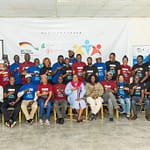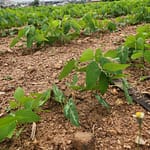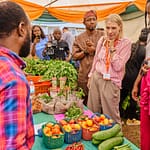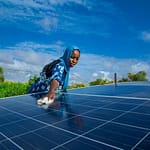As world leaders gather in Baku, Azerbaijan, for the 29th Conference of the Parties (COP29), Africa is asserting a powerful stance on climate finance and adaptation. In a global press briefing today, Amb. Ali Mohamed, Kenya’s Special Envoy for Climate Change and Chair of the African Group of Negotiators (AGN), outlined Africa’s expectations and pressing concerns, underscoring the continent’s need for fair financial support to address the climate crisis.
Amb. Mohamed revealed dissatisfaction with a draft proposal from the co-chairs of the New Collective Quantified Goal (NCQG) on climate finance, which Africa deemed “imbalanced.” The African delegation has been vocal in rejecting any redefinition of commitments outlined in the Paris Agreement, particularly regarding climate finance.
“The NCQG text was completely imbalanced, attempting to redefine established articles of the Paris Agreement,” Mohamed stated, emphasizing that Article 9 of the Agreement explicitly governs climate finance. “We, as the developing world, were not comfortable with that, so it had to be set aside following our submissions.”
For Africa, the stakes are high. The continent faces severe climate impacts, from unrelenting droughts in southern Africa to floods and displacements in West and East Africa. Mohamed highlighted Africa’s struggle to secure adequate adaptation funding and hopes that COP29 will address this gap by setting robust financing goals.
“Africa is pushing for a commensurate goal on climate finance to tackle the challenges we face as a global community,” he said. The proposed funding targets run into trillions of dollars, which African leaders believe is necessary to support a transition toward a climate-resilient future.
One of the most contentious issues at COP29 is the placement of loss and damage funding within the NCQG. While discussions are ongoing, Africa insists on establishing goals that reflect the evolving needs of climate-vulnerable regions, ensuring that loss and damage are addressed as a priority within the NCQG.
Africa’s strong stance at COP29 has been motivated by an unwavering commitment to the principles of the Paris Agreement. According to Mohamed, one of the greatest obstacles to reaching a favorable outcome is the attempt by some parties to reinterpret the Convention’s commitments. “The Convention and the Paris Agreement are clear: developed countries must lead in providing financing, while developing countries will be the recipients,” he affirmed. “We cannot renegotiate these terms.”
While African ministers initially proposed a climate finance target of $1.3 trillion, Mohamed reiterated that this figure remains a benchmark in ongoing negotiations. “This figure is not just Africa’s position; the need for trillions of dollars is broadly recognized. The main challenge lies in agreeing on who contributes and how the funds will be deployed,” he said.
Representing 54 African nations, the AGN is committed to negotiating a common position that captures Africa’s urgent climate priorities. Established in 1995, the AGN’s mandate has been to advocate for Africa’s needs in global climate forums, from securing adaptation funding to championing sustainable development initiatives.
COP29 is shaping up to be a pivotal moment for Africa as its leaders demand a shift towards equitable climate finance. With negotiations still unfolding, Africa’s steadfast position has set the stage for a potential breakthrough, underscoring that the path to a sustainable future must include fair support for the world’s most vulnerable regions.












